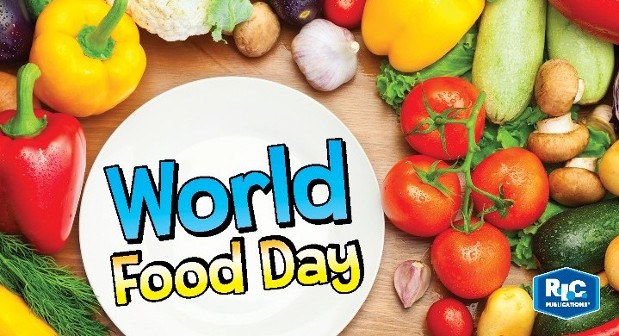- Friday 05 October 2018
- 0 Comments
World Food Day is not about celebrating food, although I am all for that. Instead it is about ending world hunger and recognising that 821 million people still live in hunger. It’s also the date that the World Food and Agriculture Organisation of the United Nations was founded. There are 17 Sustainable Development goals (https://sustainabledevelopment. un.org/?menu=1300) set out by the United Nations, dedicated to making the world a better place, and ending hunger is number two.
The UN suggests there are four ways that you and your students can help to achieve #zerohunger:
- Don’t waste food. Be wise with what you eat and don’t just throw it away. Save it for later or freeze anything you may not want right now.
- Produce more, with less. Farmers will need to find better ways to produce food and crops.
- Adopt a more healthy and sustainable diet. Use quick and nutritious recipes to make food that is better for you and uses local produce. Eating less meat is also a good way to use up less of the Earth’s resources such as water. Using local food reduces transport and pollution.
- Promote awareness of #zerohunger. Share your knowledge about the issue with others, whether it be in your school, your town or your government. The problem won’t be solved unless everyone around the world works together.
The issue world hunger doesn’t seem fair when 672 million people are obese, and 1.3 billion are overweight. Students may vote and decide on the activity they would like to do as a classroom that will contribute to a better world and reduce hunger.
Suggested activities that are aligned with World Food Day include:
- - Setting up your own school or classroom garden. Many tips can be found here (http:// www.fao.org/3/a-a0218e.pdf)
- - Designing and creating a compost bin which uses scrap foods and puts waste food to good use.
- - Be more energy efficient. Conduct an energy check of the classroom or at home by inspecting energy ratings on appliances, and creating a checklist of things to do that can save energy.
- - Plan a healthy menu and create or find recipes to make. Students can then invite parents and family to sample their healthy creations.
- - Become a leak detective and report or fix any leaks around the school or at home. This will save water which is needed to keep crops growing and ensure there is enough drinking water for everyone.
- - Don’t litter and keep our soils healthy and waterways clean. Arrange a community clean up to look after your local area.
- - Design a rooftop garden so that it can absorb heat and sunlight and create shade and clean and cool the air.
- - Create a video or digital slideshow to spread the word about the zero hunger mission.
Related Tags:
Related Posts:
